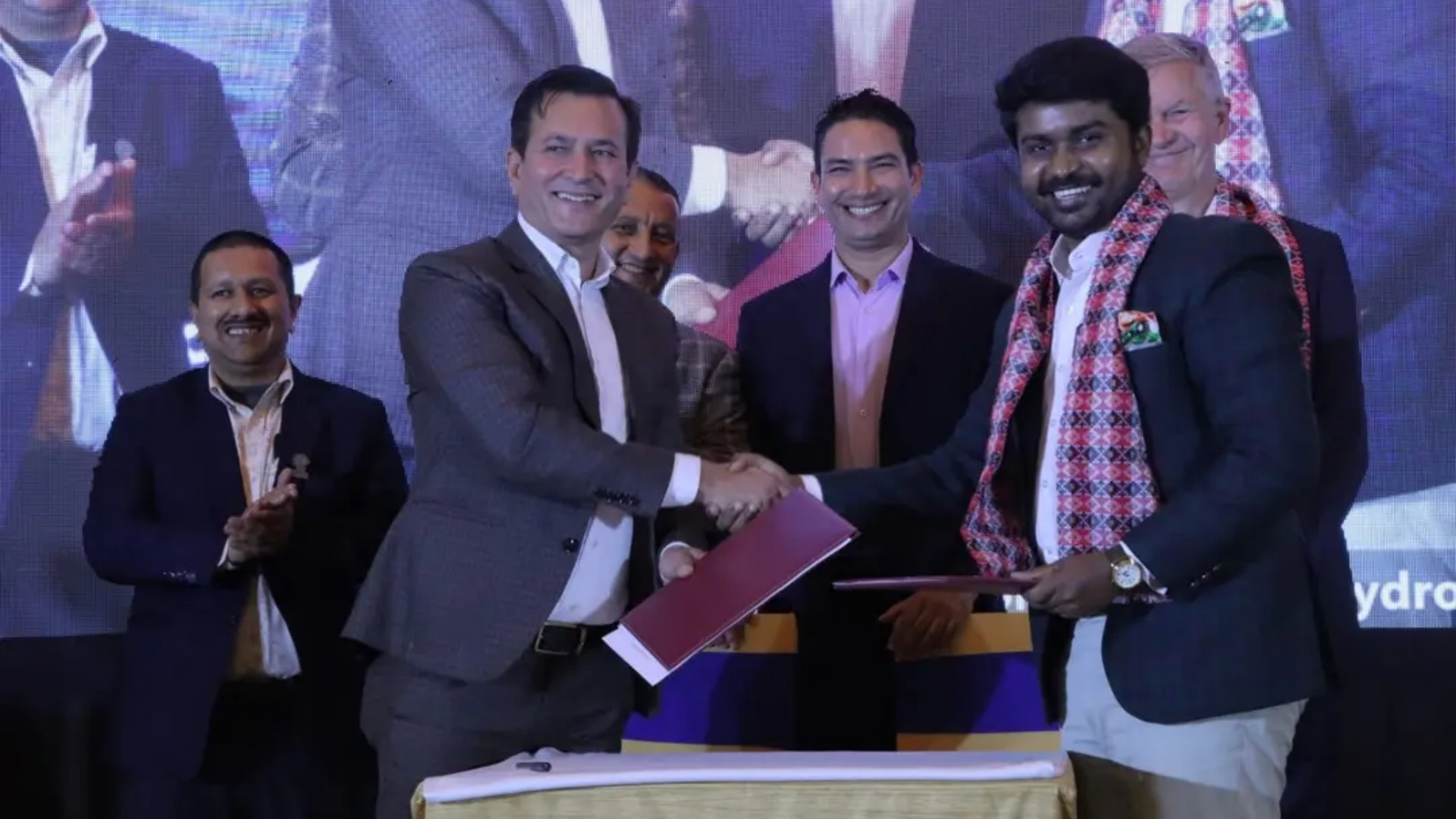
Independent Power Producers’ Association, Nepal (IPPAN) and India’s climate advisory company ProClime Services signed a memorandum of understanding (MoU) related to carbon trading during an event ‘Unlocking the Green Monetization of Nepal’s Hydropower’ January 31 in Lalitpur.
The MoU paves the way for IPPAN to acquire International Renewable Energy Certificates (I-RECs) — a global mechanism that certifies renewable or green energy plants that avoid carbon emissions. This will allow private sector producers to sell carbon credits, generated equivalent to hydroelectricity production, in the global market.
Carbon trading means buying and selling carbon credits. These credits are generated through projects that facilitate emissions avoidance and permit a company or other entity (buyers of carbon credits) to emit a certain amount of carbon dioxide or other greenhouse gases in exchange for the credit transacted.
I-RECs verify that the electricity generated from projects is from renewable sources.
Under the agreement, 2,000 MW of electricity out of the 2,700 MW electricity generated by the private sector in Nepal are eligible for carbon trading in the first phase. The trade amount is estimated to be NRs one billion annually, according to IPPAN Chairperson Ganesh Karki.
The amount is calculated by the IREC Calculator designed by ProClime, which measures the eligible amount of electricity for annual carbon trading.
The agreement is seen as significant as the share of private sector power generation in the country gradually increases. Nepal recently introduced an ‘Energy Development Roadmap and Working Guideline’ which envisions producing 28,500 MW electricity by 2035, including exporting 15,000 MW.
ProClime’s Chief Executive Officer (CEO) Kavin Kumar Kandasamy said that Nepal was set to utilise this opportunity while its neighbouring countries India, Bhutan and Sri Lanka are already benefiting from carbon trading.
Nepal has received a small amount from the World Bank for carbon trading from its forests, while hydropower promises bigger amounts. In addition to exporting electricity to regional markets like India and Bangladesh, carbon trading incentivises investment in clean energy projects.
IPPAN collaborated with the International Hydropower Association (IHA) and ProClime to organise the event.
Read More Stories
Kathmandu’s decay: From glorious past to ominous future
Kathmandu: The legend and the legacy Legend about Kathmandus evolution holds that the...
Kathmandu - A crumbling valley!
Valleys and cities should be young, vibrant, inspiring and full of hopes with...
Today’s weather: Monsoon deepens across Nepal, bringing rain, risk, and rising rivers
Monsoon winds have taken hold across Nepal, with cloudy skies and bouts of...